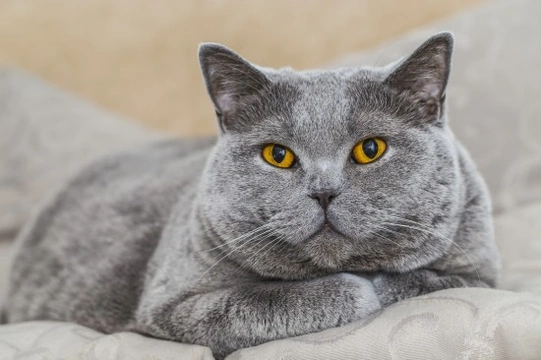
What nutrients do cats need, and what do they do?
When shopping for your cat food, it is important to choose a food that is complete, rather than designed as a supplementary food or a treat. This will be clearly marked on the packaging, and complete foods are designed to provide a balanced diet with all of the nutrients, minerals and trace elements that cats need to keep them healthy.
Complementary foods and treats are fine to feed supplementally, but these should not make up all or most of your cat’s diet, as they will be lacking in at least one or possibly more of the essentials that your cat needs in their diet to thrive and be healthy.
Read on to learn more about the essential nutrients that cats need, and why they need them.
Vitamins
Cats need to have a wide variety of vitamins included within their diets, as vitamins help to support and enable all sorts of essential bodily functions! Vitamins enable bone growth and strength, a healthy metabolism, good vision (including night vision) and healthy cell regeneration.
Some of the most important sources of vitamins for cats can be found in products such as meat, kidney and yeast, and all complete cat foods will contain just the right balance to keep your cat in tip top condition. Vitamins are also present in some grains that are commonly included within cat foods, but grains are mainly used as a filler and bulking agent, and are not essential components of cat food.
Minerals
Minerals are important to build healthy, strong bones and teeth, and to keep the skin in good condition. Minerals help with strong, healthy hair growth, and many other things too. Balanced cat food should again provide just the right balance of minerals; but not too much of any one mineral, as this can lead to problems of its own.
Some of the core minerals that cats need as part of their diets include phosphorus, calcium, potassium, magnesium and sodium chloride. Other minerals are needed too in smaller quantities (often referred to as “trace elements”) including copper, iron, zinc and selenium. Good sources of minerals include liver, fish and meat. Minerals are also commonly present in grains used for cat food, but again, grains are not an essential part of the feline diet in and of themselves.
Essential fatty acids
Essential fatty acids help to ensure the health and strength of the skin and coat, as well as the metabolism and normal digestion. In un-neutered cats, essential fatty acids also have a large part to play in maintaining the health of the reproductive system too. “Good” fats and fatty acids also contribute towards making cat food meals tasty and palatable to cats, as well as providing an important source of energy for everyday life. Fatty acids are also essential in the transportation of vital vitamins around the body, to ensure that they get to where they need to be!
The main sources of fatty acids in cat food include animal fats, and vegetable and plant oils.
Fibre and carbs
Carbs or carbohydrates are essential to the diet due to providing fibre and roughage, which helps to provide slow-release energy and keep the digestive system moving. Fibre is just one type of carbohydrate, which is important to moderate the speed of your cat’s digestion and ensure that their stools are not too runny, and their bowel movements well regulated.
Protein
Protein is one of the most important components of cat food, and the majority of the protein in your cat’s diet should come from meat and meat products. Protein and protein chains are found in all living animal tissue, including skin, claws, fur and muscles. Protein not only supports healthy growth and your cat’s nutritional requirements, but also forms the building blocks of your cat’s cell regeneration processes, and the amino acids that they contain will keep your cat’s body fit for life, and your cat healthy and well. Protein is most commonly found in the meat part of the cat’s diet, but also comes in eggs, fish, yeast and grain.
Taurine
Taurine is one of the essential amino acids that are found in protein, but taurine is worthy of a mention in its own right as it is so essential to feline health. Many of us have only heard of taurine as one of the ingredients in the human energy drink Red Bull, but well before we were over-caffeinating ourselves with energy drinks, cats were consuming taurine as an essential part of their diets!
Taurine fills a wide range of roles within the body of the cat, including helping to maintain heart health, and supporting pregnant queens and their kittens. But the best known and most important role of taurine in the feline diet is to support eyesight; taurine is essential for healthy eyes and good eyesight in the cat, as without it, cats will begin to lose their vision and will eventually become totally blind.



